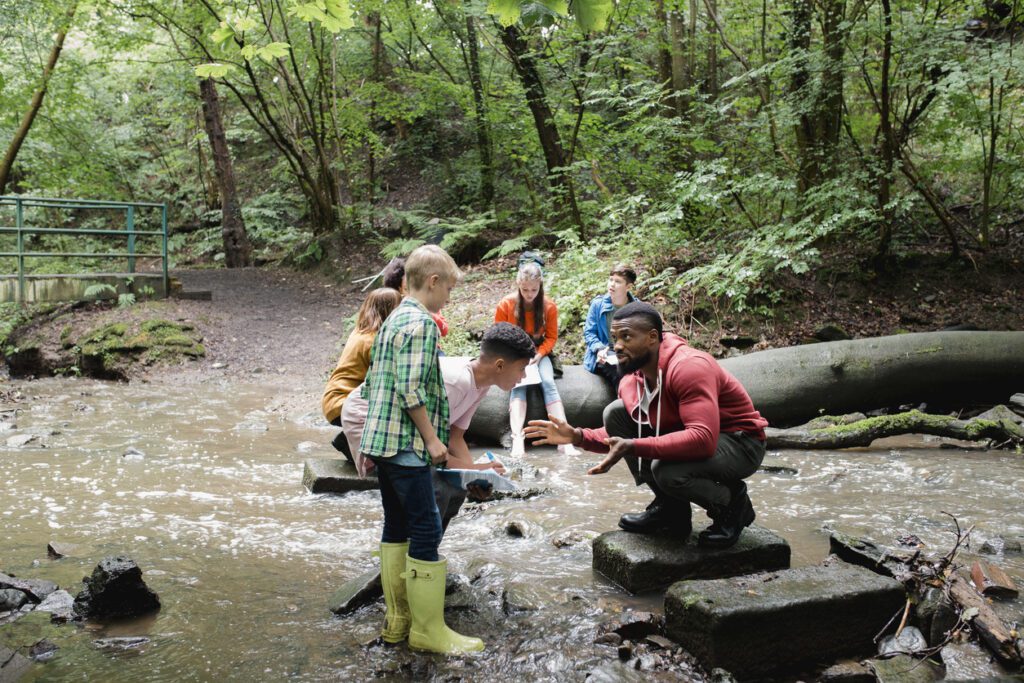Understanding Identity Foreclosure in Young People: Challenges and Solutions
As education professionals we know how important it is for youth to develop their identities. One’s identity can expose them or limit them to different career options. It can also significantly influence their future happiness and success. Unfortunately, some young people experience a phenomenon known as identity foreclosure. In this blog, I will dive into what that means for your students and how to help avoid it with career awareness.
This is a term from developmental psychology referring to a premature commitment to an identity without exploring different paths. This often occurs when a young person conforms to the expectations of their parents, teachers, or peers.
There are many risks that come along with this including:
- Limited Growth: When a young person doesn’t have the chance to explore different identities or careers, they may end up missing opportunities they would otherwise have taken.
- Increased Risk of Regret: Those who foreclose on their identity at an early age may later regret their choices. This can lead to feeling trapped in a career they don’t enjoy or live a lifestyle that doesn’t align with their true self.
- Lack of Adaptability: Individuals who have not explored different paths may struggle later in life to adapt when they are faced with unexpected career changes.
- Lack of confidence: For youth living in mentally abusive homes, this can be detrimental. This can ultimately lead them to feel worthless and not worthy of a happy and successful life.
The Importance of Career Awareness
Career awareness in K-12 education is a great strategy to prevent identity foreclosure. Here are some reasons why this is so beneficial:
- Encourages Career Exploration: Career awareness programs expose young people to a variety of professions and allows them to explore and find their interests.
- Promotes Self-Discovery: These programs help students identify their strengths, weaknesses, and interests, fostering a deeper understanding of themselves.
- Increases Engagement: When students see the real-world applications, they are more likely to be engaged and motivated in their education. This leads to better academic performance.
- Builds Career Skills: Through these programs, students can gain valuable skills like critical thinking, decision-making, soft skills, and goal setting.
Implementing Effective Career Awareness Programs
For career awareness initiatives to be effective, they need to be well-structured and inclusive. Here are some strategies for implementing successful programs in K-12 schools:
- Integrate Career Education Early: Start career exploration activities as early as elementary school and continue through high school.
- Use a Variety of Resources: Incorporate career fairs, guest speakers, job shadowing, internships, and online resources to provide well-rounded perspectives on a wide range of professions.
- Involve Parents and Your Community: Engaging parents and community members gives students access to a wide network and allow them to begin making connections. In fact, HubSpot states that 85% of jobs are actually filled through networking! Also, CNBC states that 70% of jobs are never even published publicly. (ApolloTechnical.com)
- Evaluate and Adapt: Continuously assess the effectiveness of your programs, research your local and state’s job market, and follow the job market trends. Allow your students the opportunity to become well informed and equipped with the skills needed for their future careers.
- Get support: There are many organizations that will support you when designing, building, and expanding your programs. Including us! Want to learn how we can help your program?
Avoiding identity foreclosure is important for the healthy development of young people. Together we can empower them to make informed decisions about their futures, find their true passions and interests, and lead fulfilling and successful lives.




